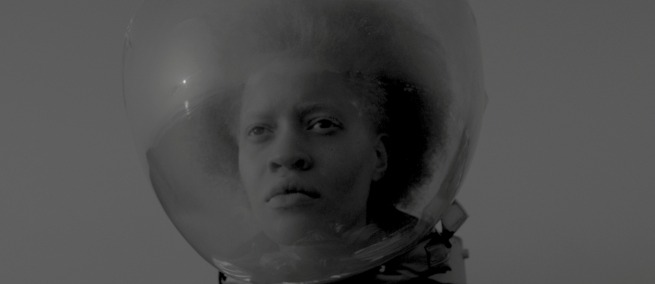
This year’s Sloan Film Summit gathered filmmaker grantees from across the country to discuss their projects, share their filmmaking processes, and, of course, screen their films. The weekend featured a diverse showcase of Sloan Foundation supported shorts from five of their partner film schools: USC, UCLA, NYU, AFI, and Columbia University. The five selected shorts all examine a different field of science in a different part of the world; they imagine a forgotten space program in Zambia and the first modern crime scene investigators in Argentina, the sexual politics of primates in Costa Rica and the installation of solar panels in rural China, and an app developer using his own technology to seduce both a date and an investor in Los Angeles.
USC Sloan grantee Gabil Sultanov’s Visible Proof tells the story of the pioneers behind an unorthodox new method for solving a homicide: fingerprinting. When two young children in a rural town outside Buenos Aires are murdered in 1892, two investigators from the city arrive to examine the evidence, carefully pressing fingers onto ink pads and painstakingly noting the similarities with fingerprints collected from the crime scene with paper and pencil. Compared to the wealth of forensic shows that now populate the airwaves, with their labs quickly scanning computer generated fingerprint matches, the meticulous cataloguing is tedious work and the local police scoff, viewing fingerprinting as a passing fad that takes too much time and energy to be worth anything. The locals officials are clearly on the wrong side of history; a bloody print found at the scene proves that the wrong suspect has been tortured into a false confession, and the investigators’ derided technique soon becomes the norm.
With alternative energy a hot-button topic worldwide, Min Ding’s Columbia University short Three Light Bulbs seems especially relevant. A young Chinese engineer returns to her rural town, where her relatives and long estranged father tolerate sporadic electricity, relying on candles and the occasional spark of electric charge that powers the town’s ancient and only television. She brings the solar panels that she has been developing, climbing onto the roof to install them under the disapproving and skeptical eye of her father. The first installation proves faulty, with the town television failing to generate a clear picture and igniting a fight with her father. He demands that she leave and she complies, but makes one final attempt at her solar panels; in the final moments of the film, her father finds that the lightbulbs in his home now work, his unexpected smile of pride illuminated by their glow for the very first time.
Both Eben Portnoy’s Wild Love and Alexander Berman’s APP explore sexual dynamics, though Portnoy’s film takes us to the Costa Rican jungle while Berman prefers the wilds of Los Angeles. In Wild Love, human sexuality is juxtaposed with that of the primates field assistant Shawn spends his days cataloguing, tramping through the jungle and curiously observing the different partners and couplings of capuchin monkeys. The human couples around him earn the same curiosity, albeit with a touch of longing; one shyly flirtatious scene between Shawn and a female researcher as they wash dishes is cut short by the return of her on-off boyfriend, who confidently pulls her away as Shawn fumbles for words. APP’s leading man Paul shares this same early awkwardness, isolated in an apartment dominated by computer screens as he develops a Siri-esque app designed to attract potential dates. In desperate need of start-up capital, Paul is challenged by a lecherous investor to make good on his app’s promise: seduce a girl, take her home, and send him the proof. As his app quickly intuits a potential partner’s interests, hobbies, even relationship history, Paul grows confident; but when they wind up back at her apartment, he hesitates, rightfully squirmy about what he’s planning to do just for some cash and how his app has turned sinister. Though neither the capuchins of Wild Love nor the artificial intelligence of APP are capable of true human emotion, they ignite new feelings in Shawn and Paul, steering them towards previously unconsidered possibilities.
Closing the program was NYU alum Frances Bodomo’s striking Afronauts, which tells an alternative history of the space race from via the tale of the Zambia Space Academy and their chosen astronaut, seventeen-year-old Matha Mwamba. On the day of the American Apollo 11 mission, the Zambians race to launch their rocket first; as they roll Matha down hills in a barrel to simulate weightlessness and chatter excitedly around a smoky fire, their dilapidated spaceship awaits lift-off, and certain death for Matha. Afronauts seems imbued with a kind of mysticism, heightened by the black and white cinematography, the one-eyed kittens intended as the Afronaut’s traveling companions, and Matha’s own face, her thoughts impenetrable behind her thousand yard stare as she gazes off at a destination she knows is impossible to reach.
Each of these films deserves recognition for their seamless integration of scientific themes, but it is the human perspectives at the forefront of each narrative that stand out. Astronauts, engineers, field researchers, app developers, and forensics experts—science might be their career, but it’s the human side of their work that’s most compelling.
FILMMAKERS
PARTNERS
TOPICS